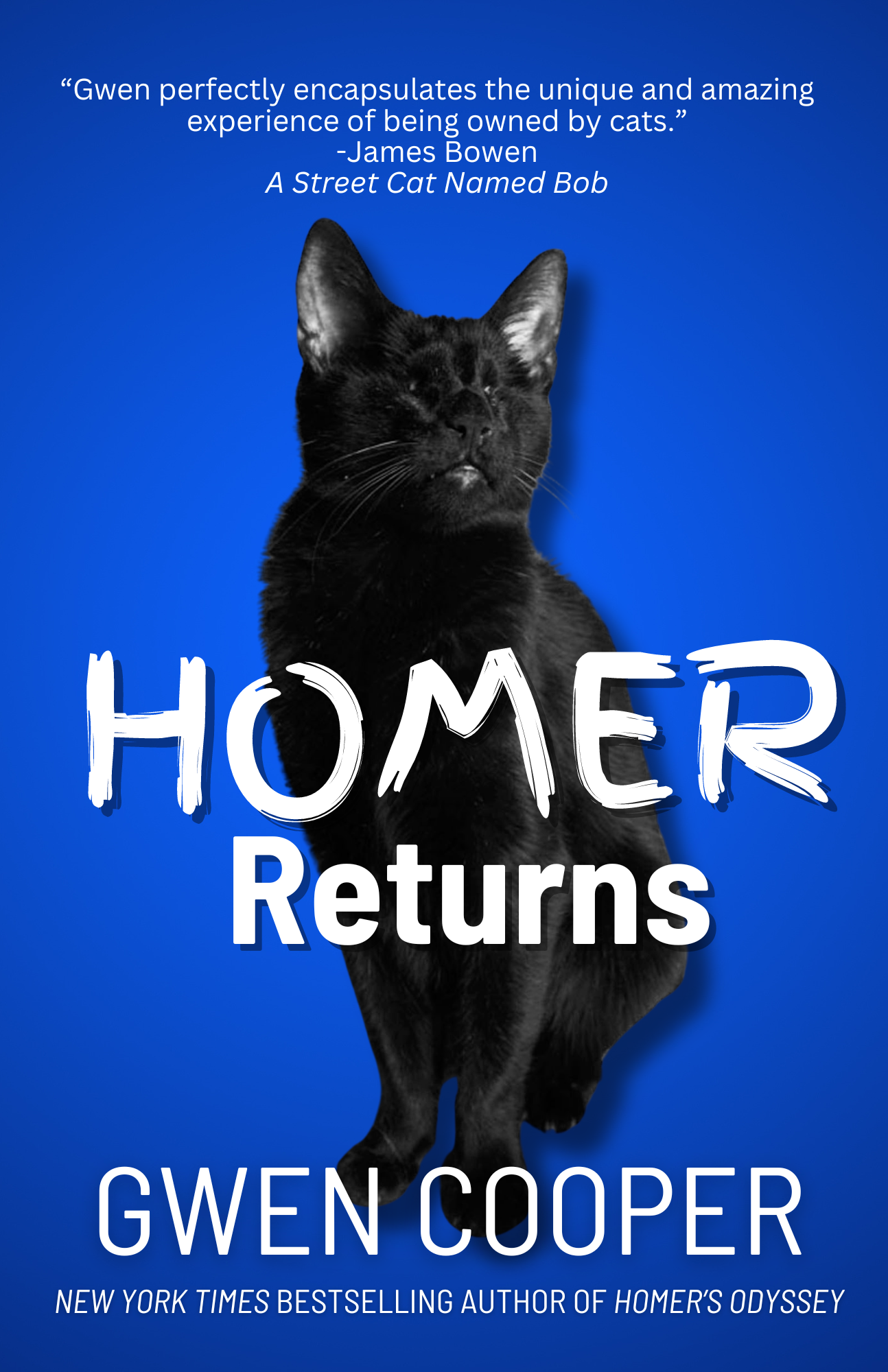

Homer Returns: More True Tales of a Blind Wonder Cat & His Fur Family (Homer Book #4)
“Gwen Cooper shines her light on the territory that defines the human/animal bond. That, in itself, is a reason to stand up and cheer.”
Delivery Information
Ebooks: Delivered via BookFunnel. Check your email for delivery instructions after purchase.
Paperbacks: Delivered by our partner. Allow ten days for delivery.
A Journey of Love and Resilience...
If you enjoy stories about:
- Heartwarming Animal Stories
- Uplifting Messages
- Bravery and Courage
- Happy Endings!
...you'll love Gwen Cooper's "Homer Returns: More True Tales of a Blind Wonder Cat & His Fur Family".
Featuring Homer, the Blind Wonder Cat.
"Homer's Returns: More True Tales of a Blind Wonder Cat & His Fur Family" is not just a book about a blind cat; it’s a testament to the power of love and resilience. Gwen Cooper’s narrative pulls you into a journey filled with heartwarming moments and incredible bravery. Homer's story will make you laugh, cry, and believe in the extraordinary potential within all of us.
⭐⭐⭐⭐⭐ "Homer's Odyssey captures the essence of overcoming adversity and brings Homer's indomitable spirit to life. A must-read for anyone who has ever loved an animal." - Amazon Reviewer
Reviews:
⭐⭐⭐⭐⭐ “I had no prior knowledge of Homer but fell in love with him and his merry band of siblings.”
⭐⭐⭐⭐⭐ “I took this book everywhere to read in my spare time!”
⭐⭐⭐⭐⭐ “Oh, I loved these stories! Gwen has a way of writing, entertaining, moving, so real, in a way that you feel really connected.”
⭐⭐⭐⭐⭐ “Lovely stories!”
⭐⭐⭐⭐⭐ “Any cat lover will truly enjoy this book.”
Choose options


Gwen donates 10% of every purchase made in her online store to organizations that rescue abused, abandoned, and disabled animals.
